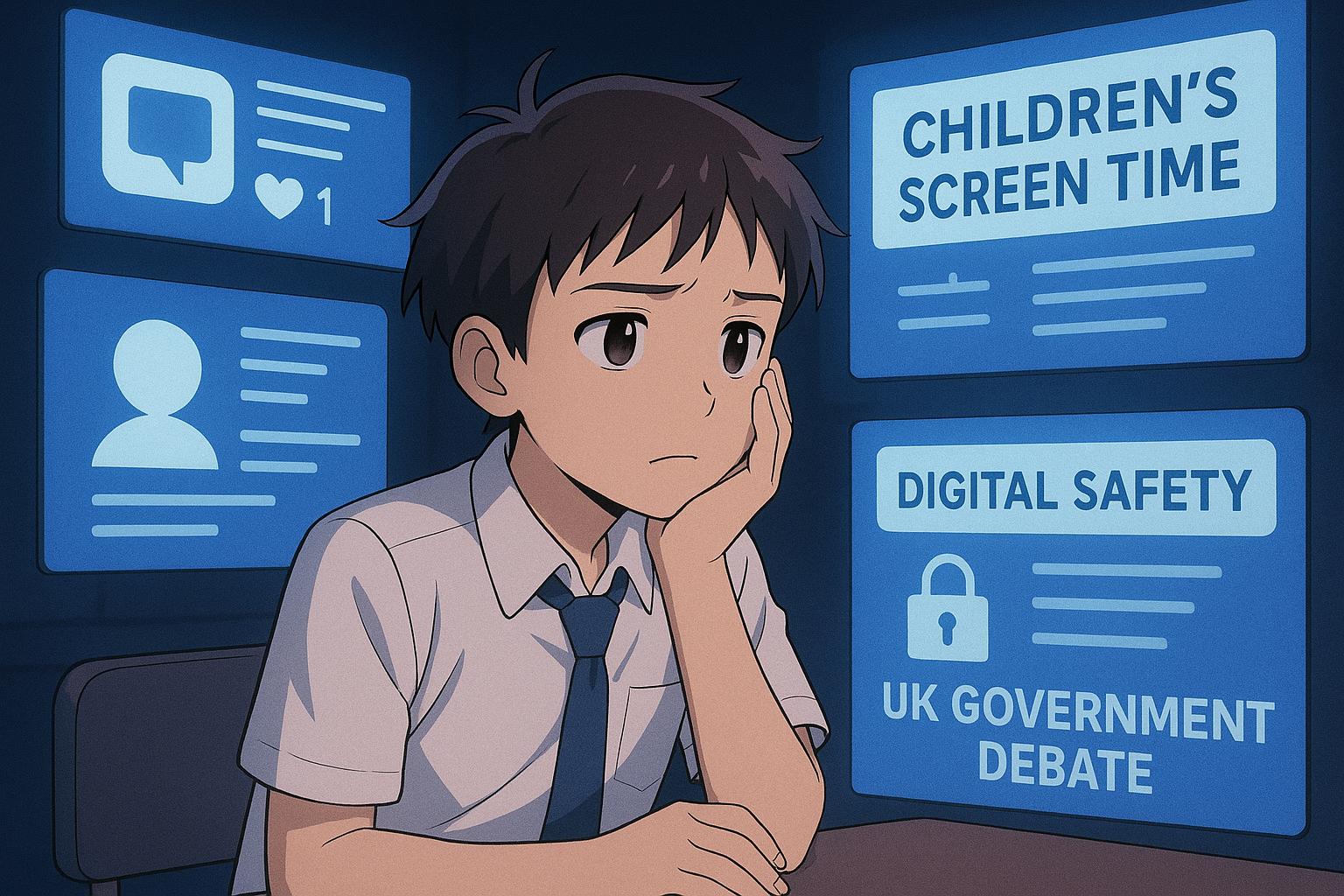Criticism has intensified towards the UK government following its response to concerns raised about children's screen time and digital safety regulations, which many stakeholders, including MPs, have labelled as "disappointing" and lacking urgency. The Education Select Committee has sharply condemned the government for downplaying the significance of its recommendations, presented in a report earlier this year. This report advocated for stronger national guidance, stricter age restrictions, and improved coordination in policy development in response to technology's growing influence on young people's lives.
Helen Hayes MP, chair of the Education Committee, highlighted the gravity of the situation, stating, "The sheer weight of evidence heard... was damning. Yet, the government's response lacks the urgency and ambition the moment demands." A significant point of contention is the government's stance that there is insufficient conclusive evidence linking screen time directly to deteriorating mental health outcomes. This view stands in stark contrast to the mounting body of correlative research and global initiatives focused on promoting digital well-being.
Among the committee's recommendations was an increase in the UK's "digital age of consent," which is currently set at 13. The call for statutory guidelines on smartphone usage in schools and greater parental engagement during early childhood underscores the urgent need for coordinated cross-departmental efforts in addressing youth digital well-being. However, government officials indicated they would merely "consider" consultations while suggesting that many schools already have mobile phone policies in place.
Some MPs argue that this lack of legislative backing leaves school heads vulnerable to disputes with parents. Hayes remarked, “The argument that most schools already ban phones misses the point. Staff would have a backstop if the law was on their side.” The continued ambivalence from the government comes at a critical juncture for the UK's tech policy landscape, particularly as it relates to the upcoming Online Safety Act, which is set to take effect in July. This legislation mandates tech companies to implement over 40 child safety protocols designed to protect younger users from harmful content.
Despite these regulatory advances, critics, including child safety charities and digital experts, are sceptical about the efficacy of such measures without broader support and clearly defined frameworks. Ben Barringer, a global tech analyst, articulated the necessity for a cohesive approach: “While regulation like the Online Safety Act is a step forward, the real challenge is joined-up thinking. Businesses and policymakers need aligned frameworks to protect users without stifling innovation—especially with AI now reshaping the risk landscape.”
The implications of these discussions are far-reaching, particularly given the UK's thriving digital economy, which has surpassed £150 billion in gross value added (GVA) and supports over 1.7 million jobs. Current Ofcom statistics reveal alarming trends: children aged 8 to 17 spend approximately five hours online each day, with many encountering unregulated content on platforms like TikTok and YouTube. The Children's Commissioner has also sounded alarms regarding children's exposure to harmful material, further exacerbated by a significant percentage managing to bypass parental controls.
As the calls for more robust digital safety regulations grow louder, organisations such as TechUK and the NSPCC are advocating for a collaborative approach among tech platforms and regulators. Critics point out that the government's hesitance to provide explicit parental guidance represents a lost opportunity to safeguard children's online experiences effectively. Hayes powerfully captured the urgency of the issue, stating, “This is a defining issue of our time. Delay will only deepen the harm—to children, to education, and to the trust we place in our digital future.”
The continued evolution of technology presents unique challenges as well as opportunities, and the pressing need for responsible digital frameworks remains at the forefront of policy discussions in the UK.
Reference Map:
- Paragraph 1 – [1], [4]
- Paragraph 2 – [1], [6]
- Paragraph 3 – [1], [5]
- Paragraph 4 – [1], [3]
- Paragraph 5 – [2], [4]
- Paragraph 6 – [1], [5], [7]
- Paragraph 7 – [1], [6]
Source: Noah Wire Services
